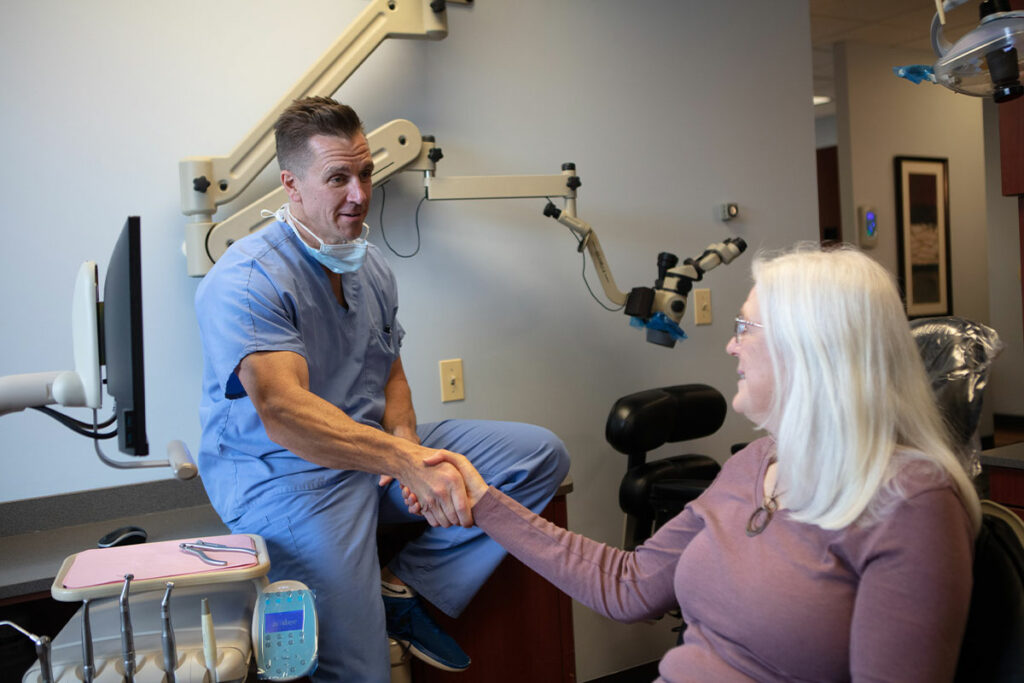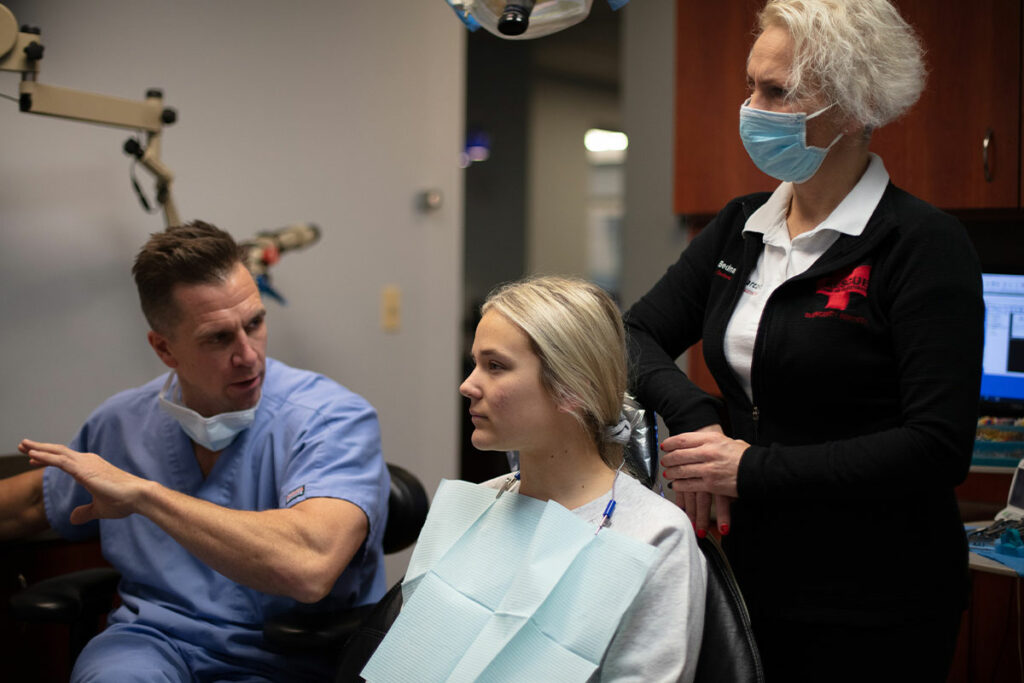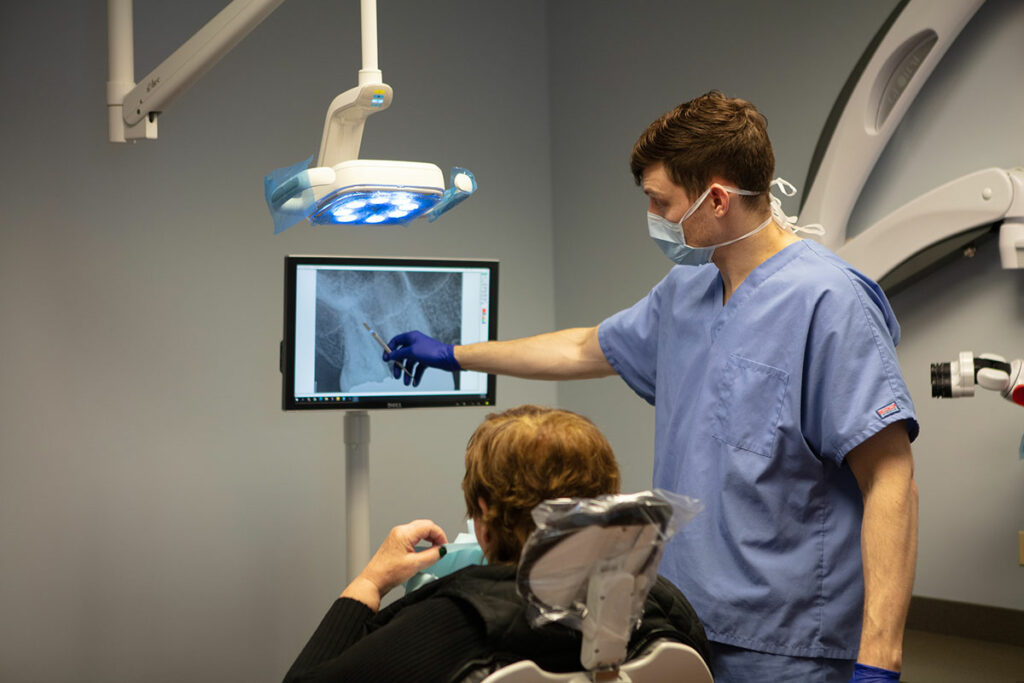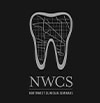After Treatment
AFTER COMPLETION OF ENDODONTIC TREATMENT
We hope your experience with us has been a pleasant one. Please read the following instructions carefully, as they encourage an effective healing process and increase the success of the procedure on your tooth.
Endodontic treatment has now been completed. The root canal system has been sealed. However, the outer surface is filled with a temporary restoration. A final restoration must be placed by your general dentist, so please call their office for an appointment. A complete report of treatment will be sent to your dentist. It is important to see your general dentist 2-3 weeks after your procedure has been completed.
Your tooth is more prone to fracture immediately after endodontic treatment. You should chew on the other side until your restorative dentist has placed a core build-up and a protective restoration, usually a crown. If your tooth’s strength is seriously compromised, your endodontist or restorative dentist may place a post and permanent filling inside the tooth. Your restorative dentist and endodontist will determine the appropriate restoration to best protect your tooth.
Following root canal therapy, it is not unusual for the tooth and surrounding area to be sore. This is a normal healing procedure and it can take up to 10 days. During that time we recommend that you take 600-800mg of Ibuprofen (Advil or Motrin) every six to eight hours for the first few days. If you cannot take Advil or Motrin you may take 1000mg of Acetaminophen (two extra strength Tylenol). Additionally, the amount of discomfort felt after treatment is dependent on the amount of discomfort a patient experienced prior to the treatment. In other words, the degree of discomfort after the root canal often mimics discomfort felt before the treatment. Regardless, discomfort and pain can typically be managed with over the counter medications.
The treated tooth contains temporary filling and prior to the permanent restoration placement by your general dentist, be cautious while eating. Though it is perfectly fine to eat immediately after the procedure, try to avoid hard or sticky foods, which may dislodge the temporary filling or damage the tooth.
We recommend that you maintain good oral hygiene with brushing and flossing to keep the area clean. Sometimes pieces of the temporary filling will chip away before you get a chance to see your general dentist, this is okay. If the entire filling falls out, please contact us. We recommend seeing your general dentist within 10-14 days of the procedure for permanent restoration.
ARE THERE ANY POTENTIAL PROBLEMS AFTER TREATMENT?
Lower teeth and nerve injury. There is a slight possibility that nerve injury can occur during root canal surgery to the lower posterior teeth. Your endodontist is trained to assess this possibility prior to treatment and will advise you accordingly. For lower posterior teeth, the root tips may be near a nerve that supplies feeling to the lip, chin and gums. Your endodontist is trained to design your surgery to minimize the chances of damaging this nerve. Rarely, this nerve can become irritated during the process of surgery. In these cases, when the local anesthesia wears off, you may experience tingling, altered sensation or, in rare cases a complete lack of feeling in the affected tissues. Should this occur, it is usually temporary and will resolve over a period of days, weeks or months. In very rare instances, these changes can be permanent and/or painful.
Upper teeth and sinus communication. The upper teeth are situated near your sinuses, and root canal surgery can result in a communication between your mouth and the adjacent sinus. Should this complication occur, it will usually heal spontaneously. We will give you special instructions if this is apparent at the time of surgery. We prefer that you don’t blow your nose for two to three days after surgery. If you have to sneeze, you should sneeze with an open mouth into a tissue. You should not create any pressure in the sinus area. If you sense a complication after surgery, please contact us.
Post-operative infections occasionally occur. This usually requires just an office visit and examination. Many times placing you on an antibiotic for one week will take care of the infection. Occasionally, other follow-up procedures will be needed, so please call if you have any questions or concerns.

 MEET DR. FITZGERALD
MEET DR. FITZGERALD
 MEET DR. PRZYBYLO
MEET DR. PRZYBYLO
 MEET DR. ATASSI
MEET DR. ATASSI
 PATIENT FORMS
PATIENT FORMS PATIENT PORTAL
PATIENT PORTAL FINANCING AND INSURANCE
FINANCING AND INSURANCE YOUR FIRST VISIT
YOUR FIRST VISIT








